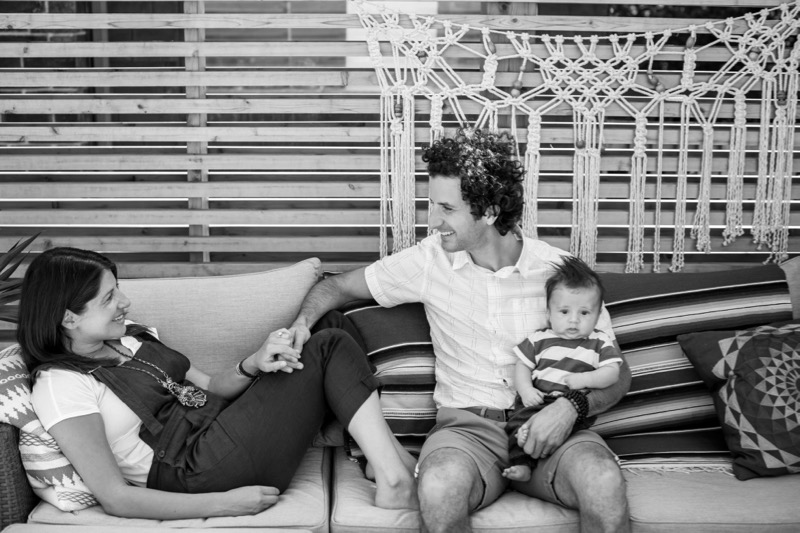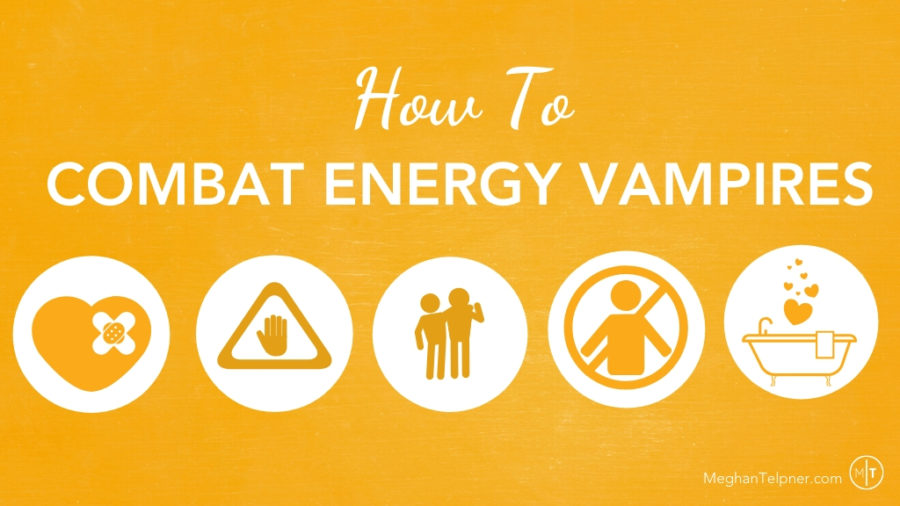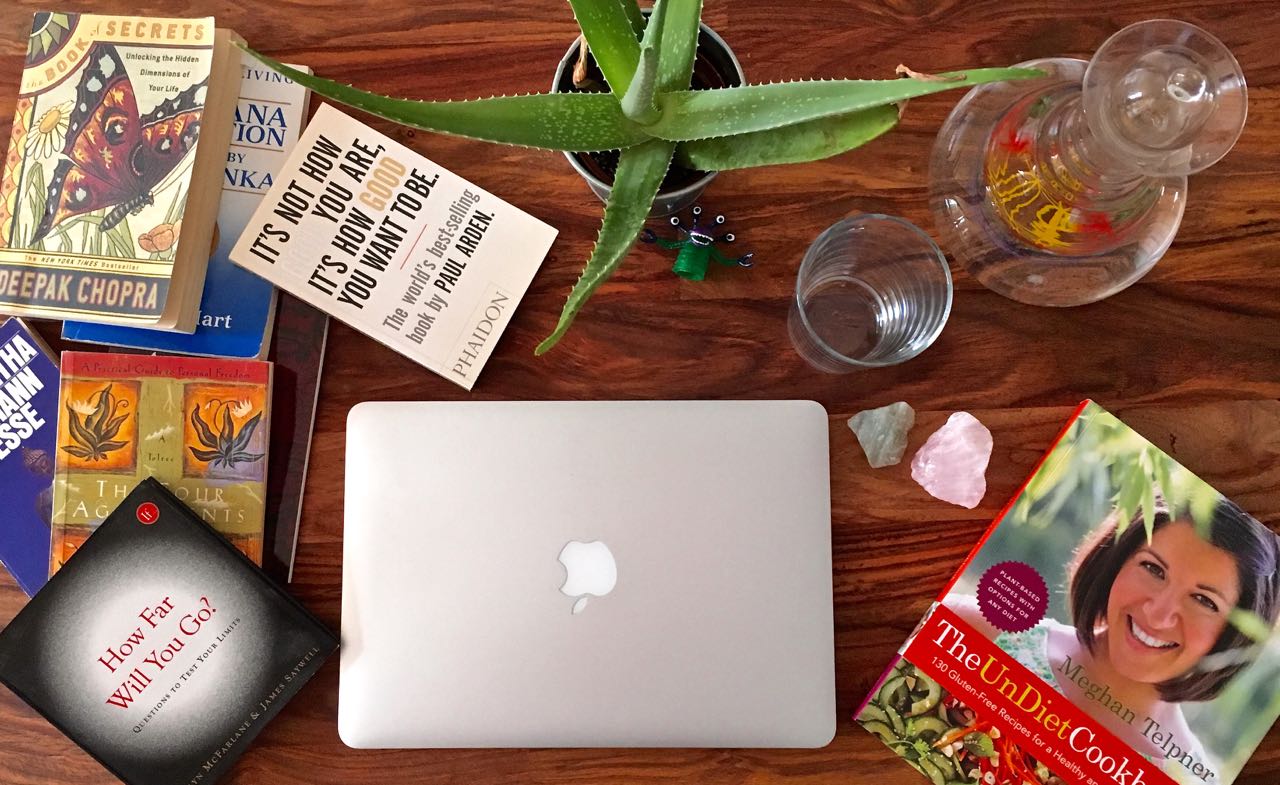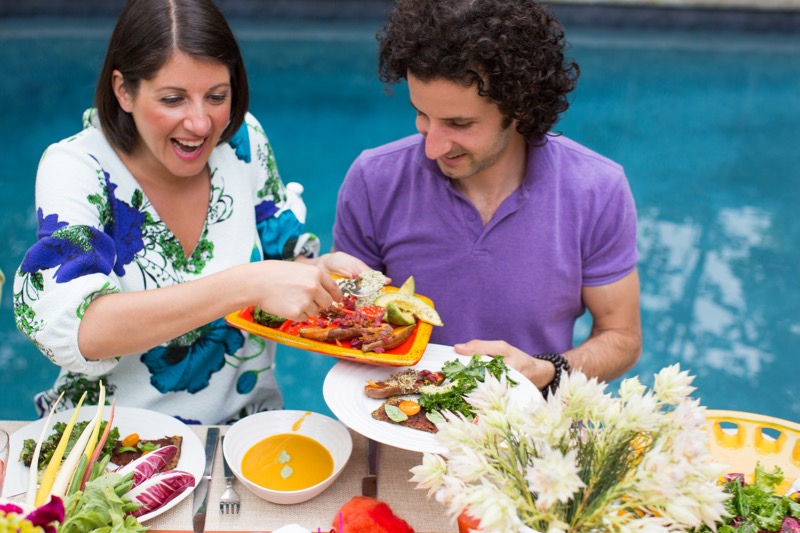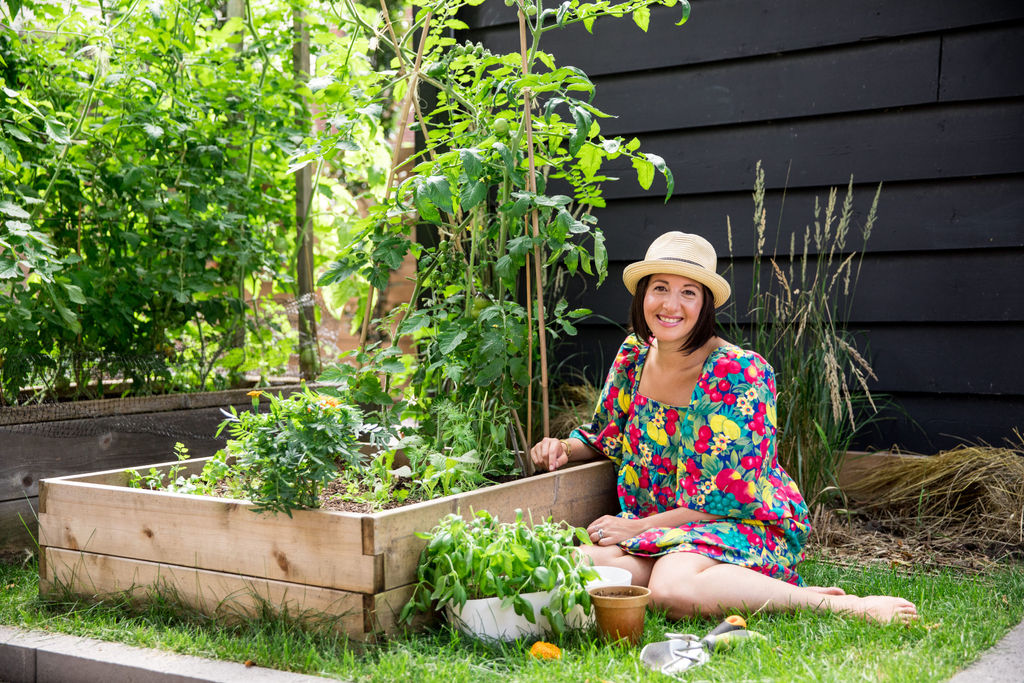From FOMO (Fear Of Missing Out) to JOMO (Joy Of Missing Out)

We’ve all done this at one point: we’re out for dinner and constantly check our phones, we double-, triple- or quadruple-book our schedules to have social plans, or we stalk other people’s photos and posts on social media. This is the condition of FOMO, or “Fear Of Missing Out”.
What does FOMO look like?
Researchers describe FOMO as a “pervasive apprehension that others might be having rewarding experiences from which one is absent,” meaning we’re worried that we’re being left out of the fun. While feelings of exclusion aren’t new, what makes FOMO such a modern phenomenon is social media and our obsessive desire to stay connected through our devices. This is what makes FOMO so prevalent. In the past, we may not have known we missed out on a fantastic party until days or even weeks later, whereas now we know we weren’t invited instantly because we see posts from the party in real-time.
FOMO has become an epidemic, and perhaps it’s why we have constructed our lives in such a way that we are perpetually busy. If we keep busy then we feel justified in our own sense of place; we are doing something and therefore, the feeling of missing out is lessened. But busyness is not a badge of honour, nor is it the solution to make us feel more included, welcomed, or loved.
I am guilty of it too. I scroll through Instagram and I wonder why I hadn’t heard of that conference that everyone seemed to be at, or how I missed that awesome yoga class in the park.
can fomo be harmful to our health?
Research emerging in the last half-decade about the fear of missing out shows that this phenomenon can lead to:
- Problematic use of smartphones
- Excessive time spent on social media
- Missing out on sleep
- Distracted driving
- Lower life satisfaction
- Interrupted study or work time
- Fatigue and stress
- Overspending to keep up
- ‘Phubbing’ – snubbing people in favour of your phone
Much of this research is performed on teenagers and young adults, but I don’t know if the results would be all that different if people my age were the subjects. We all struggle with FOMO. What is more concerning about this prevalence in the younger generation is they often don’t know what it’s like to live without smartphones, the internet, or other technologies, and these consequences of FOMO are more likely to continue into adulthood without a course correction.
FOMO takes Us Away From Being in the Moment
The downside of FOMO for all of us is we become so chronically – or seemingly – busy, that we don’t ever get to be in the moment, here and now. We’re worried about where we need to be next and what everyone else is doing.
What most of us fail to notice, in those moments, is that where we are is exactly where we’re supposed to be. What we’re doing is just what we’re supposed to be doing. And how we’re feeling in that here-and-now moment is of our own choosing. We can fear that we are missing out, or we can take the time to find the grace, gratitude, and small bits of awesomeness that surely surround us right now.
Fortunately, the emergence of FOMO has led to another phenomenon: the joy of missing out, or JOMO. This concept invites us to enjoy and celebrate our disconnection from technology and social media and experience a healthier, happier life.
The trick and the challenge is learning how to pursue JOMO. That is our own work, something only we can do.
How to Overcome FOMO and Experience JOMO
1. Focus on the Exhale
It is in our breath, in the exhale, that we can release into the present. Too often, we get caught up in the stress of ‘busy,’ breathe shallowly, and then find ourselves holding that breath with slumped shoulders and contracted lungs, surging us straight into the body’s stress response. The simplest strategy to switch into the grace of here and now, rather than worrying about what everyone else is doing, is to focus on the exhale.
How To Do It
Take the deepest inhale you can, counting to five, and then exhale out counting to 10. Extend the exhale longer than the inhale and then carry on. You will feel differently, and if you don’t yet, do it again. And again. As one of my favourite yoga teachers, Sean Corne says, “Breathe, and this too will change.”
You can also check out my complementary class on coherence, a quick breathing technique that has been life-changing for me.
2. Change Your Relationship with Technology
Technology, and particularly social media, are the strongest influences that lead to FOMO. I own an online business so this is challenging, but it’s really challenging for all of us because many jobs require us to use devices and be available at the touch of a button. You don’t need to ditch technology or social media entirely, but it’s important to manage your consumption – not just to avoid FOMO, but to have more time to spend with the people who matter to you.
How To Do It
Practice healthier cell phone use, turn off all notifications on your phone, turn your phone off at night or leave it outside at night, and shut down all devices an hour before bed.
3. Practice Gratitude
We will always feel like we are missing out if we can’t appreciate what we have. Our experience of life can be as awesome as we want it to be. Sure, there will always be challenges, but maybe that’s the opportunity to learn an awesome lesson. We can find joy, fun, laughter, and beauty in just about anything. This is the practice of gratitude, using the moments that challenge us as the moments to look for the goodness.
How To Do It
It doesn’t need to be as formal as journaling but go for it if you like. Before bed, try recounting five amazing things that happened to you that day and then marinate in that goodness all night. Try it for a week and you’ll be delighted by the in-flow of even more awesomeness.
4. Spend Time in Nature
Being outside has an incredible ability to ground us and improve our health. Disconnect – even for a short time – from technology and reap the health benefits of ‘forest bathing’, which include a boost to the immune system, a reduction in stress and pain, improved mood, and better respiratory and cardiovascular health.
How To Do It
Go for a walk in a forest. It’s really that simple. Even if you live in a city, you can benefit from visiting an urban park or garden – learn more about that here.
5. Choose Happiness as Much as You Can
Every choice counts. Some of the sufferings we experience day-to-day are the result of questioning the choices we make or the result of giving that power of choice to someone else. What obligations or doubts can you release, knowing that every choice we make will build our emotional and physical health or work against it? Knowing that every choice counts, from diet to sleep to socializing to pooping, can you choose your own prescription for health and happiness? What choices would you make?
How To Do It
Choose your prescription for feeling great. What do you need to do, who do you want to see, where do you want or need to be to feel your absolute twinkling, sparkling, and shining best? Though we can’t always choose everything we wish we could, we do have the option of choosing how to respond and react in any given situation. That’s where exhaling and gratitude can help, too.
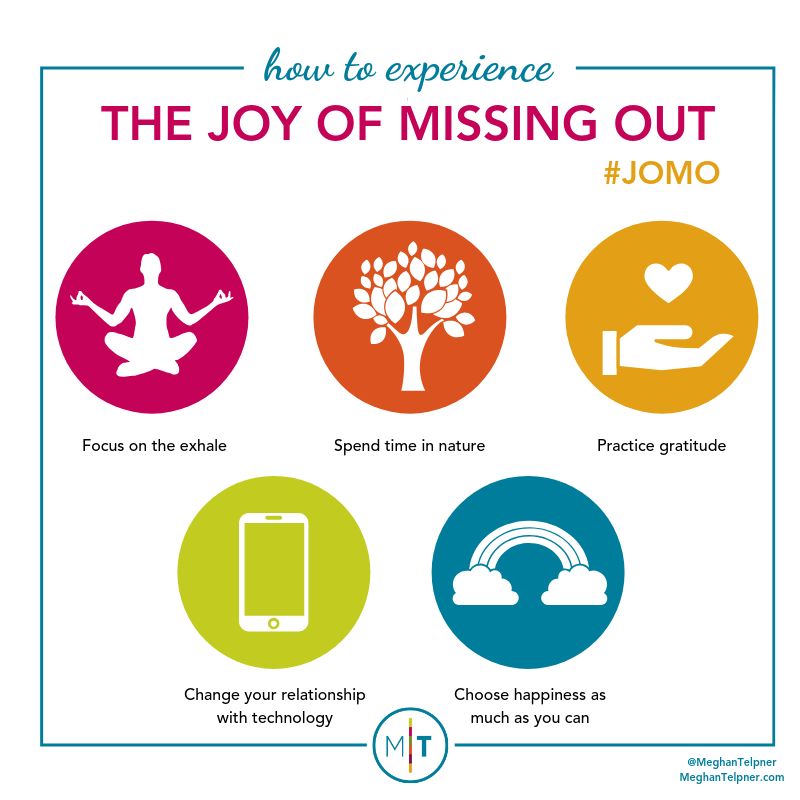
What are your best strategies for keeping yourself in the Here and Now, and warding off the evils of FOMO?
On My Mind Episode 26: From FOMO (Fear Of Missing Out) to JOMO (Joy Of Missing Out)
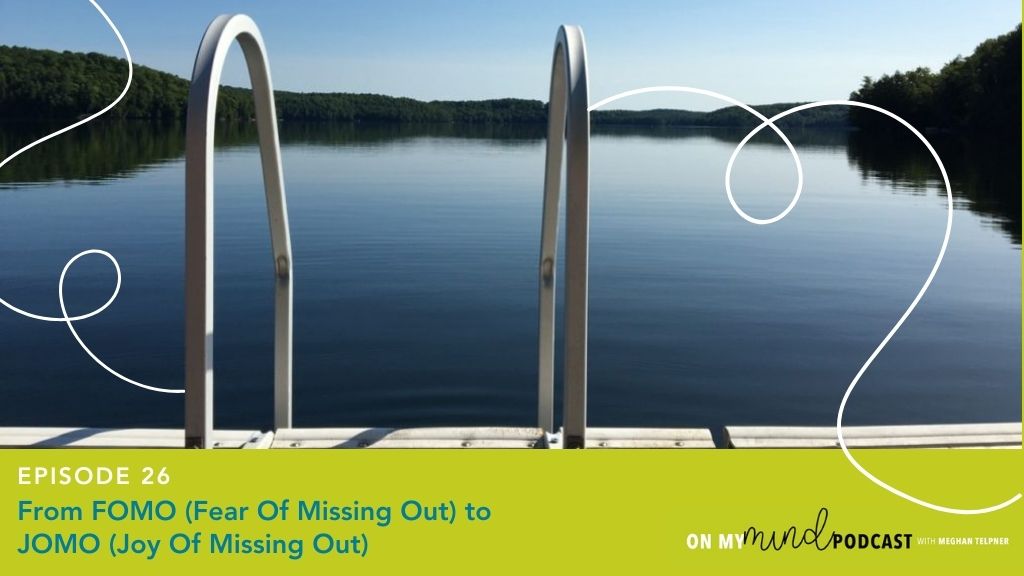
Subscribe today on your favourite podcast app and never miss an episode.
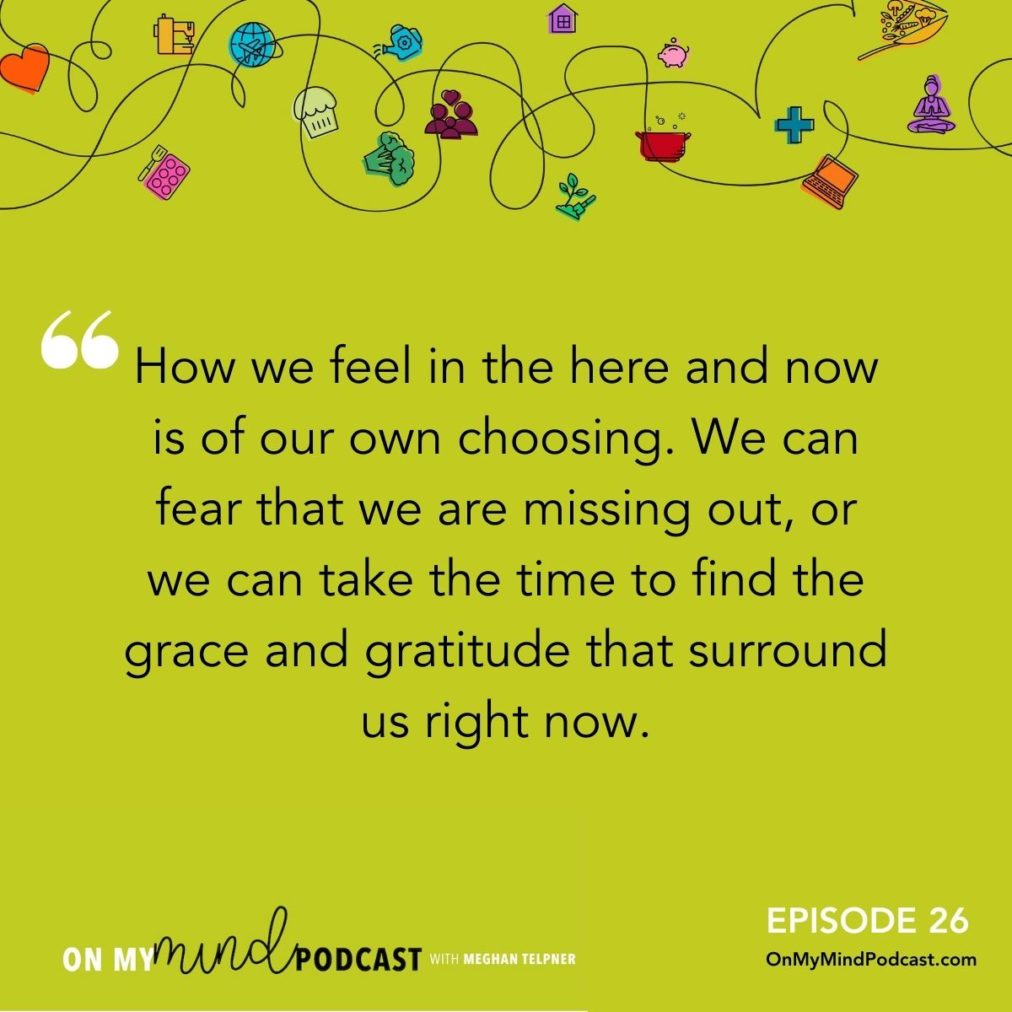
Free Resource Library
Enjoy more than 40 downloadable guides, recipes, and resources.















